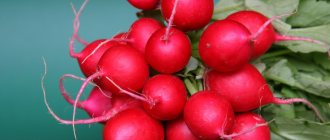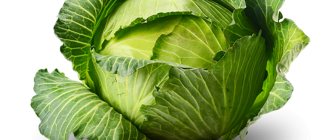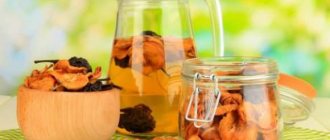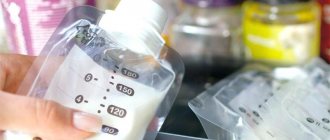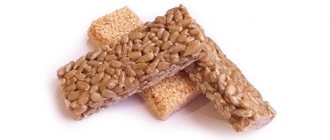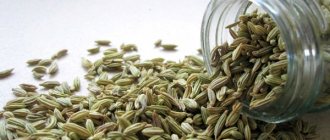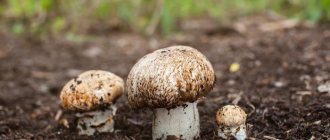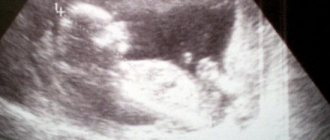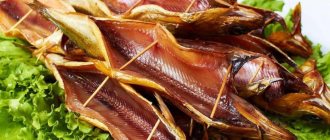When breastfeeding, the mother needs to carefully monitor her diet so that the foods she eats do not cause any harm to the baby’s health. Therefore, she has to limit the intake of many dishes. These also include mushrooms. Breastfeeding women often wonder: can a nursing mother eat mushrooms while breastfeeding? They want to know how the baby’s developing body will perceive the product. Can mushrooms have a negative effect on a child?
Is it possible to have mushrooms while breastfeeding?
A strict diet is justified only for the first few months, and then if the child is prone to rashes, he is tormented by gas. After about 2 months, on the third month you can very carefully start eating mushrooms in small portions. This is what I did, for example, when I was determined to feed Anya for at least 2 years. Let's immediately decide which mushrooms can be introduced into the diet.
What mushrooms can nursing mothers eat?
- Oyster mushrooms
- White champignons
- Champignons, brown, dark (royal or pechertsy)
The most important thing about them is that they should only be fresh and only from supermarkets!!! No pickled, salty dishes, or bought at the market from grandmothers. Why, I will answer.
- Such representatives of greenhouses are completely devoid of heavy metals (they did not grow along roads where cars rush and there is a high concentration of exhaust gases).
- They were not collected by mushroom pickers (let them not be offended), who could make a mistake and pick a toadstool, which they would sell to you.
- Pickled ones contain vinegar, but refrain from salted ones for now. It’s better to eat dry ones then.
Champignons during breastfeeding
photo of champignons
We will talk about champignons, which are not only tasty, but also extremely useful for their composition. No one disputes that people in villages lead the healthiest lifestyle. So tell me, in which village used to have such a thing as a postpartum diet? Women sometimes fed children up to 3 years old, ate mushrooms because they grew in the forests nearby and were available, which means they were eaten regularly from May to October. Even during fasting, their use is allowed, which serves as further evidence of their usefulness as an analogue of meat for a certain period.
What benefits do champignons contain for nursing mothers?
Let's start with the composition of nutrients per 100 grams:
- From 80-90% moisture. This is comparable to the most moisture-containing vegetables, because cabbage contains 91% water, and cucumbers 95%. Everyone knows how important liquid is for humans.
- Easily digestible protein is almost 4%,
- Up to 2% fiber, which helps cleanse the body and remove toxins, heavy metals,
- Maximum 1.5% carbohydrates,
- There is also a minimum of fat, approximately 0.3-1%
- Minerals 1.5%
Which mushrooms can be classified as dietary during breastfeeding?
When you ask the question: “Can nursing mothers eat mushrooms,” remember why champignon is valuable. It contains the same amount of protein as a liter of cow's milk; the digestibility of this protein is 80-90% by the body. What else is absorbed so well? The protein composition of this mushroom is unique:
- 18 amino acids, 8 of them are called essential. They can enter the body of a nursing mother only with food. The Japanese have been researching mushrooms for a long time, and this is the conclusion they came to. These gifts of nature have an increased concentration of argenine and lysine. These components are necessary to strengthen memory and intellectual abilities. Lecithin, which is also present in champignons, stabilizes nerve fibers (nervous system) and improves brain function. Lecithin is prescribed for children with weak eyesight and excitability, but you can get it with breast milk if the nursing mother eats mushrooms.
- The most important B vitamins are even higher here than in fresh vegetables. It makes me want to put a lot of exclamation points. This is the beauty of women's hair, nails, skin. Particularly interesting is riboflavin, referred to as B2, thiamine B1. These vitamins will help a nursing mother avoid headaches and migraines, which often occur in the late afternoon if the baby is naughty for a long time.
The benefits and composition of champignons for nursing mothers
If you still don’t know how to answer the question: “Can nursing mothers eat mushrooms,” then we will continue to argue for the benefits of champignons. They contain nicotinic acid (this is what they drink almost throughout pregnancy) and pantothenic acid. During breastfeeding, mushrooms also supply vitamins A (which is practically absent in greens), C, D (without it calcium cannot be absorbed). Microelements:
- Manganese,
- Selenium,
- Zinc,
Having received all these vitamins and microelements, the nursing mother will pass them on to her baby with milk.
Often, when typing the phrase “Mushrooms during breastfeeding” into a search engine, they mean dry mushrooms. Yes, you can eat them too, but it’s worth considering that the nutritional value of dry ones is much higher. They are about 6-10 times more caloric than fresh ones, since they are a concentrate. The caps are the most caloric.
In general, they can rightly be classified as low-calorie products, because 100 grams contain only 27 calories. I know people who even eat them half-raw in salads (wash them, pour boiling water over them and soak them in mayonnaise or sour cream for a day). The nutritional value of a dish depends on the method of preparing the dish.
Contraindications and important nuances of consuming mushrooms for nursing mothers
Mushrooms during breastfeeding should be eaten very carefully by people who have kidney disease, liver disease, or problems with the gastrointestinal tract. The high content of folic acid in champignons (which is excellent for pregnant and lactating women) can be dangerous for people with cancer. Oversaturation of the body with folic acid promotes very rapid cell growth.
In the next article I will write to you how to select and store champignons, as well as simple, quick and of course very tasty mushroom dishes.
Summarize.
When, while shopping in a store, you meet a girl at the counter with mushrooms who is hesitating, as if wondering: “Can breastfeeding mothers eat mushrooms?”, you can start a conversation about the benefits of champignons for almost everyone.
Among mothers, there are different views on the question of whether it is necessary to adhere to a diet while breastfeeding. Some believe that it is absolutely necessary - after all, some foods give the baby a stomach ache and cause colic. Others, on the contrary, are for freedom in the diet of a nursing mother and believe that you can try different foods a little at a time. Opinions differ regarding the use of mushrooms during lactation, so it will be useful for a young mother to learn more about this product.
Champignon
Champignons, when consumed correctly, can be very beneficial for nursing mothers. This is confirmed by research data from Japanese scientists. This variety of mushrooms contains substances that affect intellectual abilities and significantly improve memory. The lecithin contained in them normalizes the functioning of the nervous system and has a positive effect on vision. When these substances enter the baby's body through milk, they gently soothe the baby.
Champignons consist of 85-90% water, about 4% of them are protein, which is easily absorbed by the body. The fiber in this tasty mushroom helps remove toxins and harmful substances. The proportion of fats and carbohydrates in it is minimal (about 2% in total), so champignon dishes can be eaten without harming your figure.
This dietary product contains substances that will benefit a nursing mother.
- About 20 amino acids, of which 8 are absolutely essential. It is impossible to get them from vitamin complexes.
- The content of B vitamins in champignons exceeds their amount in fresh vegetables. A woman after pregnancy and during lactation needs them - they make hair and nails stronger and improve complexion. Vitamins B1 and B2 relieve fatigue and headaches.
- Useful minerals – zinc, manganese, selenium. The latter is very important for mother and baby - it increases resistance to infections, maintains muscle tone and improves the functioning of all parts of the brain.
- Folic and pantothenic organic acids. Folic acid promotes active cell division (including cancer cells). If you have a predisposition to cancer, it is better to exclude champignons.
The benefits and harms of mushrooms
Mushrooms are a difficult product to digest, which is why it is recommended not to include them in the diet of a child under 5 years of age. When we talk about breastfeeding, we mean both the mother’s diet and the diet of the baby, who feeds on mother’s milk. It is better to use mushrooms with caution when preparing food for a nursing mother.
Let's figure out why.
Since time immemorial, not a single house could live without mushrooms. Mushrooms were eaten during their growing season and were always collected and stored for the winter. And we are talking here not only about the nutritional value of this product, but also about its many beneficial properties, because mushrooms:
- a storehouse of useful substances that help maintain the health of the body (contains vitamins E, A, PP, D, group B, as well as important microelements - zinc, copper, phosphorus, potassium, calcium);
- They are a dietary product because they contain almost 90% water, and very little fat and carbohydrates;
- take a long time to digest and give a feeling of fullness for a long time, which will also be appreciated by people watching their weight;
- contain melanin, a powerful antioxidant that helps slow down the aging process in the body;
- rich in protein, which is necessary for muscle growth.
The enormous benefits of mushrooms make this product very popular in preparing a large number of dishes.
Thanks to this wonderful composition, mushrooms have a beneficial effect on the body:
- help maintain and strengthen the immune system;
- prevent the formation of cancer cells;
- reduce cholesterol levels.
The disadvantages are as follows:
- when cutting a mushroom, we cannot visually assess the degree of soil and air pollution (even edible mushrooms can have a detrimental effect on the body, because they can accumulate harmful substances from the environment);
- this product is a strong allergen, so it is not recommended to introduce it into a child’s diet too early;
- there is a risk of being poisoned by inedible mushrooms (even a poisonous mushroom sometimes ends up in the basket of an experienced mushroom picker).
Possible harm from maternal consumption of mushrooms during breastfeeding
Before introducing mushrooms into your diet, every young mother should familiarize herself with the list of possible side effects from eating such food.
- First of all, it should be mentioned that not all mushrooms are edible. Thus, among the forest varieties of this product you can find a lot of poisonous mushrooms, which are very similar to edible ones. Mushroom poisoning is usually very serious, even fatal.
- It is also necessary to remember that mushrooms receive nutrients from the soil in which they grow. If it is contaminated, then heavy metals accumulate in the mushrooms, which, if they reach the mother or baby, can cause considerable harm to health.
- Like many other foods, mushrooms can cause allergies in infants. It manifests itself in the form of a rash (especially on the feet, palms and face), red spots, peeling skin, watery eyes, coughing and difficulty breathing.
- Mushrooms can cause serious digestive problems, even if they have been grown artificially. If your baby experiences a change in stool consistency, diarrhea or constipation, colic and bloating, you should immediately stop eating mushrooms and consult your pediatrician.
- Since mushrooms remove excess fluid from the body, they increase the load on the kidneys and the entire urinary system as a whole. For this reason, if you suffer from urolithiasis, then it is better to avoid such a product.
- The large amount of protein in mushrooms makes this product difficult to digest.
Mushrooms are contraindicated for those mothers who suffer from other ailments associated with the digestive system.
Is it possible to eat mushrooms while breastfeeding?
Only the nursing mother herself decides whether to eat mushrooms or not, after weighing all the pros and cons.
Colic is one of the most common causes of anxiety in a child in the first months of life. They are painful intestinal spasms. Colic often bothers infants due to certain foods that mother eats. It is advisable for a woman to provide herself with food that would not increase the already unpleasant sensations in the baby’s stomach.
Even breast milk can cause tummy troubles for a baby. This is due to the level of hormones in a woman’s milk changing throughout the day.
Mushrooms are quite a heavy food even for adults, not to mention a baby. Colic is not the only problem that a young mother may encounter when introducing mushrooms into her diet. This product can disrupt the normal functioning of the child’s intestines: loose stools, excessive gas formation and pain in the tummy may appear.
The best option would be for a young mother to refuse dishes with mushrooms during breastfeeding.
But if you decide to diversify your meals with this product, follow some rules:
- start with small portions and be sure to monitor your baby’s reaction (at the first signs of an allergy, completely eliminate mushrooms from your diet);
- You should not opt for wild mushrooms (after all, they are capable of absorbing toxins and heavy metals from the soil);
- do not buy mushrooms from hand, because in this case the conditions for their growth, collection and storage are unknown;
- even in the case when mushrooms have already been completely introduced into the diet of a nursing mother, a serving of 50–60 grams is sufficient.
In what form is it better to consume mushrooms for a nursing mother?
Salted and pickled mushrooms are tasty, but they are of little benefit to mother and child. Homemade preparations contain a lot of salt, which is necessary for the product to be preserved throughout the winter. Excessive salt consumption leads to water retention in the body. With breast milk, the baby will receive this excess salt, and it is more difficult for a fragile body to cope with changes in water balance. Also, the mother’s lactation may decrease, because salt will take away fluid.
The consumption of canned mushrooms by nursing mothers is undesirable due to the high salt content
When breastfeeding, fried mushrooms are also not recommended to be included in the diet. Remember that the baby’s stomach and intestines are not yet ready to digest such a heavy product as mushrooms, and even fried ones.
You should not use dry or frozen mushrooms in cooking, because in this form it is difficult to assess their condition. Choose fresh young mushrooms.
It is best to eat mushrooms boiled (soup) or stewed, or baked.
This way they will undergo thorough heat treatment and will also be easier to digest in the mother’s body, without causing bloating or disturbing the baby.
The most gentle option for the baby would be mushroom broth without pieces of mushrooms. Season this broth with sour cream.
Remember that mushrooms can cause colic, bloating and flatulence in a baby
What mushrooms should you eat during lactation?
The safest mushrooms among all others are champignons.
They are not as toxic as other mushrooms. These mushrooms help cleanse the body and reduce toxin levels due to their fiber content, are an excellent substitute for meat and contain only 27 kcal per 100 grams.
Important! Champignons should not be eaten by people with gastrointestinal diseases, joint disorders and pancreatic diseases.
Champignons are safe even for people with diabetes because they do not contain sugar or dangerous fats.
A nursing mother should try champignons no earlier than 4 months after giving birth. This should be a small portion, consisting of 5-6 pieces. Champignons should be finely chopped. This way they will be better absorbed.
It is best to purchase store-bought mushrooms that are grown on special farms. This will minimize the likelihood of poisoning. Choose young champignons that have a film under the cap. Wash and clean them thoroughly.
Eating champignons has a beneficial effect on vision and brain function in general.
If your baby is initially prone to allergies, it is better to avoid champignons altogether.
Another safe mushroom is oyster mushrooms. This mushroom is also low-calorie, but to a greater extent than champignons, it is capable of causing allergic reactions.
Oyster mushrooms are another mushroom that can be grown on farms and, when purchased from trusted stores, will be a safe option for a nursing mother.
Of the many forest mushrooms, give preference to chanterelles. They will help you calm down, get rid of depression and anxiety, and improve sleep. But remember that only if you are sure where the mushrooms grow, they should be collected and cooked.
Porcini mushroom is also popular among nursing mothers. Beware of inedible and poisonous spears. Remember that the cut line of a real porcini mushroom will not turn black.
Porcini mushrooms can also be included in the diet of a nursing mother.
If you are faced with a choice - to eat wild mushrooms or farm mushrooms, opt for the latter. The ecological situation in our forests has recently left much to be desired, so take care of your health and the health of your baby.
Diet of a nursing woman
Many women after giving birth often ask the same questions: can a nursing mother have mushrooms, plums, watermelon, citrus fruits, and so on? And usually everyone unanimously asserts that it is absolutely impossible to say that these products will have a bad effect on the child’s health. As a rule, this refers to colic and allergies. However, this was not the case before; women ate absolutely everything. And even now in some countries women do not limit themselves to anything. So how can you find out for sure whether nursing mothers can have mushrooms or milk, for example?
Everything is individual. Immediately after giving birth, you should not eat everything, as the newborn’s reaction to unfamiliar foods is unpredictable. You can eat boiled chicken, buckwheat, and vegetables.
You need to be more careful with red vegetables and fruits, strawberries, citrus fruits, and smoked meats. You should gradually add variety to your diet, introducing one product at a time and observing the child’s reaction.
There is an opinion that if a woman ate a product during pregnancy, then she can eat it while breastfeeding - the baby is already familiar with it. However, this rule does not apply if the baby is predisposed to allergies. Therefore, you need to be careful when eating new foods, and this especially applies to mushrooms. But if you take into account all the features of mushrooms, neither the mother nor the child will have any problems.
Making champignon soup while breastfeeding
The easiest to digest and digest will be champignon soup. Use the simplest recipe, without unnecessary frills or rare ingredients.
During breastfeeding, include mushrooms in your diet no more than 1-2 times a month
To prepare it you need to prepare the following ingredients:
- 4 things. potatoes;
- 300 g champignons;
- 1 onion;
- 2.5 liters of water;
- 30 g vegetable oil;
- 100 g pasta;
- salt to taste;
- bay leaf and fresh herbs - optional.
Cooking steps:
- Bring water to boil in a saucepan, add salt and bay leaf. Cut the peeled potatoes into cubes.
- Once the water has boiled, remove the bay leaf and add the potatoes.
- Cut the champignons and onions into cubes. Fry the mushrooms and onions a little in vegetable oil and place in a saucepan.
- Then add the pasta and cook for another 5-10 minutes.
The opinion of Dr. Komarovsky is categorical: you cannot eat mushrooms during breastfeeding
So, Evgeniy Olegovich is convinced that a nursing mother can easily do without mushrooms in her diet. This doctor’s opinion is due to the risk of poisoning, which always exists. Even the most knowledgeable mushroom picker can make a mistake. The consequences of poisoning are so great and serious that exposing an infant to such danger is like a crime. Dr. Komarovsky also reminds us of soil contamination in forests and the unsafe nature of mushrooms growing in these places.
I, as a mother of two children, can say that I also listen to the opinion of Dr. Komarovsky. Therefore, with both my first and second children during lactation, I did not eat mushrooms at all. The health of children is more important to me.
Video: menu for a nursing mother (nutrition during lactation)
After a woman becomes a mother, she already thinks not only about herself, but also about the child. Therefore, it is important to plan your diet in such a way as not to harm the baby. Knowing about the beneficial properties of mushrooms, as well as the possible problems when consuming them during breastfeeding, you can now make an informed decision in this regard.
Perhaps every person, at the sight of a beautiful boletus, develops an appetite and increases salivation. The taste and smell of noble saffron milk caps or champignons cannot be confused with anything else. However, many women wonder whether a nursing mother can eat mushrooms; will they harm the baby?
If just a few decades ago mushrooms were one of the main products in the diet of our ancestors, today nutritionists consider them a very difficult product for digestion and recommend adults to eat them with extreme caution, and also prohibit children from eating them. Are they really that dangerous? Let's try to figure this issue out.
Why are mushrooms harmful for nursing mothers and babies?
Mushrooms are known to be toxic. They, like a sponge, absorb harmful elements, heavy metals and all kinds of poisons from the earth. When preparing mushroom dishes, these substances do not disappear anywhere, and, naturally, enter the female body, and then the baby, which is fraught with severe intoxication. In addition, spores of most fungi easily enter the respiratory tract and cause an allergic reaction.
Mushrooms contain a polymer called chitin, which forms compounds with proteins and forms thin, very durable tissues. It is this substance, which is a direct relative of cellulose, that makes them difficult to digest products. Chitin is a sorbent of heavy metals, so mushrooms collected near highways and industrial enterprises are poisonous and dangerous to eat.
Even if the mushroom product is of high quality, and the dish made from it is very tasty and aromatic, it may not be absorbed by the mother’s body, which means that the newborn will experience diarrhea, colic, and flatulence. If the mushrooms are prepared incorrectly, or their quality does not meet the standards, then in addition to serious stress on the internal organs, the nursing mother may suffer from acute food intoxication.
Can a nursing mother eat mushrooms? Experts answer in the affirmative, but only if these are proven, safe products prepared without disrupting the technological process.
Benefit or harm?
It is not recommended to consume mushrooms while breastfeeding, despite the fact that they are a unique and very healthy product.
Is it possible to eat watermelon while breastfeeding: all the arguments for and against
The negative properties of this product include the following:
- Vegetable protein, contained in large quantities in mushrooms, is very difficult to break down by the enzymes of the human body, which is why this product is considered difficult to digest.
- Most mushrooms accumulate harmful substances, such as nitrates, toxins, and heavy metal salts, which can cause allergic reactions and poisoning.
Consumption of mushrooms during lactation
Despite all of the above, mushrooms can be eaten while breastfeeding. The fact is that only wild mushrooms have negative characteristics. The poison secreted by some forest crops can be overcome by an adult organism, but for a child’s body it will become a serious threat.
“Cultivated” oyster mushrooms and champignons, grown on special farms or mushroom farms, are suitable as food for a nursing mother during lactation. It is best to purchase them from trusted sellers or reliable supermarkets. This shows concern not only for one’s own health, but also for the consequences for the child.
Not all women love champignons and oyster mushrooms, then they wonder whether a nursing mother can have mushrooms from the forest. If, nevertheless, you decide to eat forest crops, it is best to give preference to porcini mushrooms, chanterelles or boletuses, which not only have excellent taste, but are also well absorbed by the human body. Chanterelles are especially useful, improving vision and increasing muscle tone. They contain a minimal amount of toxins, as well as various harmful substances.
Champignons are the best option for breastfeeding. It is especially good if a nursing mother prepares soup or puree soup from them, and also adds mushrooms to vegetable stew. This cooking method is optimal.
Often women ask: can a nursing mother have dried mushrooms? This option is the safest, since the possibility of poisoning the baby is minimal. It’s great if the mushrooms were grown at home.
It is strictly forbidden for nursing mothers to eat mushrooms fried in oil. In this case, they will have a negative effect on the mother’s body, and can cause severe poisoning or intestinal problems in the child.
Compatibility with lactation
In the first months after the birth of the baby, when his body has not yet learned to produce the required amount of enzymes to digest foods that are unusual for the baby, it is better not to eat mushrooms for a nursing mother, so as not to provoke colic, bloating and indigestion in the baby.
Harmful substances that accumulate in this product and enter the child's body when fed with milk can cause allergic reactions in the child and even lead to poisoning. Moreover, due to fungin, which affects the liver, such poisoning is very difficult for humans to tolerate. And for a baby whose internal organs are not yet functioning properly, it can be fatal.
Not so simple
There is another side. Mushrooms are a very heavy product. They contain a substance called fungin, which makes them difficult to digest. If consumed frequently, you can easily get an upset stomach.
But that's not all. Mushrooms, like a sponge, absorb everything bad from the environment, including radiation. Because of this, even an edible mushroom becomes dangerous to human life. And if an adult’s body is more stable and can withstand the harmful effects of a “bad” specimen, then for a child even a small dose of a harmful substance can become deadly. Mainly because of this fact, many doubt whether nursing mothers can eat mushrooms.
We shouldn’t forget that people used to be able to distinguish mushrooms from childhood, but now most people don’t understand them at all. It is very easy to pick a poisonous mushroom instead of an edible one, and for death it is enough to eat only about twenty grams of such an inedible dish.
How to introduce a new dish into your diet?
When the baby is six months old, the mother can carefully introduce mushrooms into her diet. This should be done gradually, like all new products, observing the baby’s reaction.
- It is advisable to consume a new product in the first half of the day in order to track how the child’s body reacts to it.
- First you need to start eating industrial oyster mushrooms and champignons, and not wild mushrooms grown in open ground. However, in this case there is a risk that during the growing process they were treated with various chemicals.
- Mushrooms during breastfeeding must be carefully processed. They should be boiled, preferably until pureed.
- When drying mushrooms, fungin, which is harmful to the liver, is destroyed, so it is advisable to introduce dishes from them into the diet first.
- Salted and pickled foods worsen the taste of milk and irritate the baby’s stomach, and fried foods contain a large amount of carcinogens and fats. Therefore, it is best to eat stewed or boiled mushrooms.
- You should not eat mushrooms purchased from strangers, as they can be collected near roads, landfills or large industries, which will result in a high content of toxins.
- Doctors allow the mother to eat wild mushrooms collected in ecologically clean areas no earlier than two years after the birth of the baby, if by that time she is still breastfeeding. At the same time, it is very important to eat only those of them that you are absolutely sure are edible. Any questionable species are strictly prohibited from being eaten. And children can be given mushrooms no earlier than 7-10 years old.
Is it possible for a nursing mother to eat shish kebab and what cooking rules will make it a healthy dish?
Doctors recommend that nursing mothers not eat mushrooms while breastfeeding, so as not to cause harm to the baby’s body even through negligence. But even when it is already possible to eat them, special attention should be paid to their origin and the cooking process.
Each person gets used to a certain diet, has a standard set of dishes included in his menu with varying frequency. During pregnancy, expectant mothers are forced to adjust the range of foods they consume in accordance with doctor's recommendations. Finally the baby was born - is it now possible to return to your favorite dishes? How will their consumption affect the health of the newborn? Will there be an allergic reaction? Will the taste of the milk change?
One food that raises such questions is mushrooms. They are tasty and nutritious, but sometimes dangerous. Can a nursing mother eat mushrooms, and if so, what kind?
How to eat mushrooms correctly during breastfeeding
To combine breastfeeding with eating mushrooms and not harm the baby, you must follow some rules:
- include them in the diet when the baby is 6 months old;
- the most acceptable and safest option are oyster mushrooms and champignons when breastfeeding;
- With caution, forest species of mushrooms (boletus, honey mushrooms, boletus, saffron milk caps) are introduced into the diet of a nursing mother. Pediatricians advise eating them when the baby is one year old or at the end of lactation;
- for the first time, you are allowed to eat no more than 3-5 pieces in the first half of the day, carefully monitoring the child’s reaction. If he experiences undesirable symptoms (disordered stool, redness of the skin), then it is necessary to seek medical help and remove mushrooms from the diet;
- if there are no negative manifestations, the baby eats well and does not have diarrhea, then mushrooms can be eaten no more than twice a month until the baby crosses the twelve-month age threshold. In the future, forest products are allowed to be consumed once a week in small portions (50 g);
- mushroom product should be purchased from reliable sellers. If the quality of the product is questionable, then it is better to refuse to purchase it.
Read on the topic : the benefits of pumpkin during breastfeeding and how it can be prepared.
In addition, a nursing mother should consider that:
- You only need to cook fresh, clean, young fruits that have not been touched by the wormhole. It is better not to use frozen, dried, rotten mushrooms;
- During lactation, stewed, boiled, baked mushrooms will be beneficial. On rare occasions, mommy can afford fried mushroom dishes;
- Mushroom broths with vegetables can be eaten when the baby is six months old. Soup with forest fruits can be introduced after a year of breastfeeding;
- For dressing you should use sour cream or vegetable oil. You should avoid spicy seasonings and mayonnaise;
- mushrooms are contraindicated in case of exacerbation of gastric, liver, and kidney ailments;
- There is kombucha, which you can drink after 6 months of breastfeeding.
To prepare a mushroom dish, the fruits are carefully sorted, washed and peeled. For better digestion, they are cut into small pieces.
Dangerous qualities of mushroom dishes
Mushrooms are a very common food item, but they are not for everyone. Nutritionists warn that they have a number of features:
- Digestion takes more than 3 hours, since mushroom food is very heavy;
- the human body does not cope well with the assimilation of any mushroom dishes;
- mushrooms can contain a variety of toxins and heavy metals that penetrate them from the soil and air;
- For persons with kidney or gallbladder diseases, mushrooms are contraindicated.
A person suffering from a disease of the gastrointestinal tract or biliary tract is forced to give up this delicacy. They should not be consumed by children under the age of 7-8 years, since the child’s digestive system is not yet ready to cope with such loads. However, during breastfeeding, the processing of mushrooms occurs in the mother's body, so this restriction does not apply to breastfed babies.
Although mushroom dishes are very tasty and nutritious, they also contain some danger. Nursing mothers should use mushrooms of any kind with great caution to avoid food poisoning.
What are the benefits of salted mushrooms during breastfeeding?
Mushrooms are a healthy product containing a large amount of vitamins, minerals, healthy carbohydrates and vegetable protein. Regular consumption of salted mushrooms can replenish the supply of essential substances in the human body no worse than consumption of vegetables, fruits, and meat dishes. In addition, they have a pleasant taste and are suitable for many different dishes.
Salted mushrooms are best eaten with potatoes or boiled vegetables.
It is not recommended to consume fresh vegetables along with salted mushrooms, as this can lead to increased gas formation and bloating.
Salted mushrooms go well with onions and olive or vegetable oil. It is preferable to eat such mushrooms in the first half of the day so as not to burden the stomach before bed. After all, such a dish takes a long time to digest.
The main positive functions of salted mushrooms are:
- Salted mushrooms are digested slowly, resulting in a long-lasting and lasting feeling of fullness.
- Most of the mushroom consists of water, which makes them useful for maintaining hydration in the body.
- Salted mushrooms are recommended for people with gastrointestinal diseases. The liquid released when pickling mushrooms plays the role of a kind of barrier between the walls of the stomach and gastric juice.
- Mushrooms in this form contribute to the proper functioning of the nervous and circulatory systems.
- Due to the increased zinc content, they reduce the body's need for sweets and sugar and normalize the functioning of the pancreas.
- Regular use of this product has a positive effect on the appearance of a young mother. Nails, teeth and hair are strengthened, skin condition improves.
- In some traditional medicine recipes they are used as a prevention and treatment of inflammatory, viral and colds.
Useful properties of mushrooms
This article talks about typical ways to solve your issues, but each case is unique! If you want to find out from me how to solve your particular problem, ask your question. It's fast and free
!
Despite a number of contraindications, mushrooms are a valuable food product and an excellent source of protein. Beef and fish contain 2 times less protein than dried porcini mushrooms. There is even more protein in champignons. In terms of protein content, they are surpassed only by low-fat cottage cheese.
In addition, mushrooms are a low-calorie product, which is very valuable for dietary nutrition. Below is the energy value of the most commonly eaten species (per 100 g):
- chanterelles – 17 Kcal;
- boletus mushrooms – 20 Kcal;
- boletus – 22 Kcal;
- champignons – 27 Kcal;
- oyster mushrooms – 33 Kcal.
Surprisingly, even porcini mushrooms contain only 34 kcal per 100 g of weight. At the same time, the feeling of satiety after eating mushroom dishes comes quickly and does not go away for a long time, which is due to their poor digestibility. This makes them suitable for rapid weight loss - for example, getting back into shape after childbirth.
A large amount of vitamins and amino acids also makes mushrooms a valuable food product. They contain B vitamins: B1, B2, B5, B6, B9, as well as PP and C. Vitamins A and E are present in them in slightly smaller quantities, and there is also a little beta-carotene. Mushrooms contain potassium, magnesium and phosphorus, which they contain even more than fish. Contains iodine, chromium, cobalt and molybdenum. A small amount of sodium, chlorine, calcium, as well as iron, zinc and fluorine complements the palette of beneficial substances contained in mushrooms.
The list of beneficial properties does not end there - they contain melanin, that is, the strongest natural antioxidant. In addition, due to the content of beta-glucans, mushrooms have immunomodulatory properties. Beta-glucans increase the activity of cells that digest harmful bacteria - macrophages. They also contain chitin. It is this that leads to poor digestibility of mushrooms, but it binds toxins and heavy metals contained in tissues, then removes them from the body.
Mushrooms suitable for nursing mothers, methods of preparing them
The harmful properties of mushrooms listed above are characteristic mainly of forest representatives. It is advisable to buy champignons for a nursing mother in the supermarket, you can also buy oyster mushrooms - the woman can eat them without fear. Among the forest ones, it is recommended to use white and boletus, as well as chanterelles. The latter are a natural antibiotic and are even used as an anti-tuberculosis agent. In addition, they relieve fatigue, can relieve insomnia, improve vision and maintain muscle tone.
The ideal dish for a nursing mother is soup; it is best prepared from champignons. Nursing mothers can also take wild mushrooms during breastfeeding, but dried ones are the safest. The recommended types can be stewed, boiled and baked, and they are digested in the same way.
During lactation, it is better to avoid frying mushrooms because:
- Frying is extra calories. Oil, which is necessary for frying, is the most calorie-dense product we consume. Because of this, fried mushrooms will cease to be a dietary food and will lose a significant part of their attractiveness for nursing mothers.
- The boiling point of vegetable oils is very high, much higher than the boiling point of water, so when frying, the product is deprived of a significant part of its vitamins.
- Heating the oil leads to the formation of peroxides, which contribute to the destruction of cell membranes in the human body.
- When fried, some carbohydrates are transformed into acrylamides, which are dangerous carcinogens.
Nursing mothers should also not eat pickled, salted or other canned mushrooms, as they contain a lot of spices and preservatives. These components can change the taste of breast milk, and in some cases even lead to poisoning in the baby.
Pickled mushrooms are a traditional dish in our latitudes. However, it is completely unsuitable for a nursing mother, since such mushrooms contain too much salt, vinegar and spices
Reasons for concern
According to nutritionists, these products do not have a clear opinion about the advisability and benefits of their use for a number of reasons:
- the ingredient is heavy and is digested in the human body for more than three hours;
- not all components are well absorbed;
- mushrooms belong to a special class, therefore they tend to absorb negative elements from the earth and air;
- Excessive consumption negatively affects the functioning of the kidneys and gallbladder.
Due to the high chitin content, mushrooms take a long time to digest. This substance is part of the shell of insects. Water and the presence of other organic compounds are not enough to dissolve it. Mushrooms contain a lot of vitamin B, microelements and eighteen amino acids. However, only ten percent of them are absorbed by the body. Digestion puts a lot of strain on the gastrointestinal tract. What can we say about their combination with fried potatoes.
Champignons are allowed during breastfeeding
The mushroom accumulates radioactive elements and toxins in its body. Only a long cooking process helps to eliminate them. This also kills most of the vitamins and minerals.
If you eat mushrooms during breastfeeding, you can pass toxins to your baby through breast milk. Because of this, the baby may experience food poisoning, which will negatively affect his well-being.
It is not recommended to eat mushrooms if you have stomach, intestinal or kidney diseases. Their use should be avoided in the presence of cholecystitis or hepatitis. Children under eight years of age should also not eat them, as their digestive system is not yet ready for such a load. When breastfeeding, the load is placed only on the mother's body.
How to eat mushrooms without harming your baby?
When introducing any new product into the diet, it is recommended to observe moderation and consume it in small portions. In this case, you need to carefully monitor whether the child has any signs of allergies. If everything is fine, there are no skin rashes, swelling, the baby’s tummy does not hurt, you can continue to eat mushrooms while breastfeeding.
We must remember that mushroom poisoning, as well as botulism, can appear 12 hours after eating food. Sometimes this period increases to 3 days, so you need to be extremely careful when choosing, preparing and consuming mushrooms.
The famous pediatrician Dr. Komarovsky recommends that a nursing mother completely exclude wild mushrooms from the menu for the entire period of breastfeeding. They are a traditional food product for many peoples. However, Komarovsky draws the attention of parents to the fact that the toxicity of mushrooms depends on the environmental situation in the place where they grow, and when collecting there is always a risk of making a mistake, so even obviously edible mushrooms collected by an experienced mushroom picker can be dangerous for the baby.
(
1
rated
5.00
out of
5
)
During the postpartum period, a woman quite often has to change her own taste preferences, because everything she consumes passes through milk to the baby. The newborn's gastrointestinal tract is imperfect and reacts sensitively to new food. At the same time, the baby needs the maximum amount of vitamins and nutrients for harmonious growth and development. At the same time, it is important for a nursing mother to be guided by several principles when choosing food products - calorie content, vitamin composition and safety.
In an effort to diversify their diet, mothers wonder whether it is possible to eat mushrooms while breastfeeding. Today, the negative aspects of “quiet hunting” products are increasingly noted, forgetting about the benefits of mushroom soup, dried, pickled boletus, chanterelles, and champignons.
Mushrooms have a unique composition. They contain more protein than some types of meat, and the amount of vitamin C is higher than that of citrus fruits. The fruits contain phosphorus, iodine, zinc, calcium, vitamins A, E and D. Eating forest products can influence the following processes in the body:
- strengthen the functioning of the nervous system;
- improve thyroid function;
- purify the blood;
- strengthen blood vessels and heart;
- recharge your batteries;
- prevent infections and inflammatory processes;
- prevent the development of cancer cells.
In addition, dishes with mushrooms have a distinct unique taste and aroma. Caps and legs can be salted, pickled, fried, boiled. The product is used in salads, soups, meat dishes and as fillings for dough products.
Despite its beneficial properties, the product requires significant effort from the body to digest. This is due to the high content of chitin in mushrooms, therefore, to facilitate digestion, forest products are subjected to long-term heat treatment.
No less dangerous is the property of mushroom pulp to absorb large quantities of heavy metals and other chemical compounds. You should not consume products collected near highways, garage communities, parking lots, adjacent to industrial zones or agricultural lands, or in areas contaminated with industrial waste. Arsenic, lead, mercury, cadmium and copper can accumulate in body tissues and cause poisoning without pronounced symptoms.
In addition, fragrant caps and legs can accumulate radiation. The most powerful batteries of cesium and strontium are considered to be fly mushrooms, Polish mushrooms and boletus. Before consuming forest products, it is recommended to check for radiation content and collect products in environmentally friendly areas.
Regarding the reputation of mushrooms as radiation accumulators, there is also the opposite opinion that the abundant fiber content in forest fruits, on the contrary, helps remove free radicals from the body that appear under the influence of radiation. It is worth noting that the double boiling process significantly reduces the amount of cesium. Drying processes increase isotope levels.
Fungal spores and mycelium can cause allergic reactions. Symptoms of the disease may include common signs of food allergies (diarrhea, rash, itching, abdominal pain) or the occurrence of allergic rhinitis and asthma.
Mushrooms should not be consumed by children under 12 years of age, persons with gastrointestinal diseases, and pregnant and lactating women.
There are no strict recommendations as to when it is best to include mushrooms in the menu of a young mother during breastfeeding. Immediately after childbirth, you should definitely not consume forest products. A number of medical experts insist that mushroom dishes should be avoided throughout the entire lactation period. Some doctors take the position that high-quality, proven mushrooms, provided that all processing rules are followed, will not harm the baby as early as three months. In particular, from the third month it is possible to include champignons in the diet. If you can’t give up your favorite treat, then it is important to consider the rules for consuming the product while breastfeeding:
- champignons and oyster mushrooms are considered the most harmless during breastfeeding;
- honey mushrooms, boletus, milk mushrooms and boletuses, chanterelles during breastfeeding are not recommended to be included in the diet for up to a year; it is better to enjoy the taste of aromatic fruits after the end of lactation;
- Fried mushrooms combined with potatoes are also not worth eating. Such a mixture of difficult-to-digest foods can overload the liver and cause disturbances in the gastrointestinal tract.
- You should not eat canned food or pickles;
- As a first test, use a small portion of boiled or stewed mushroom and carefully monitor the baby’s well-being. In case of negative reactions, the use of mushrooms should be postponed.
- If you are breastfeeding, you can eat the fruit twice a month, the daily norm is 50 g;
- it is best to buy species grown on special farms, away from cities and roads;
- preference is given to young fungi without damage;
- Do not eat raw mushrooms;
- Before cooking, the caps and stems are thoroughly cleaned, soaked in salted water, and boiled in 2–3 water changes.
The healthiest and safest is kombucha. You can drink it after the baby is 6 months old. From six months of age, such a drink is allowed to be given to children as an alternative to tea or juice.
Only young fruits should be cooked. When purchasing, make sure that there are no dents, spots or other damage on them. It is better not to use dried and frozen preparations. To season the dish, you can use vegetable oil or sour cream. Avoid spices and salt.
champignons during war
I liked the article: copy-paste (I am accumulating knowledge for the future)
Nutrition for a nursing mother. An eternal topic... This is truly an eternal topic. Key words for Russian-language search: “nutrition for a nursing mother.” Keywords for English-language search: “nutrition for the nursing mother” Look - and you will get a lot of the most contradictory information. And your already-fed-girlfriends will add. And then you will hear a lot of new things from all the other relatives of the child... At the same time, nutrition of a nursing mother is a completely uninteresting topic. About which there is nothing to say. And more! Lactation
- a very energy-intensive process that requires a lot of food :).
One liter of milk requires 600-900 kcal. Therefore, we eat as much as we want and be sure to drink. Milk consists of more than 80% water, so a nursing mother needs to drink an additional 1-1.5 liters of liquid (or, as foreigners write, drink at least 8-10 glasses of liquid per day) The diet should be varied. It is necessary to eat all food groups a day - meat/fish, vegetables, fruits, cereals, milk/fermented milk products. “Sitting” on buckwheat with dried bread and water is unacceptable. You need to eat 4-5 times a day, definitely. And, strictly speaking, that's all :). Nutrition for a nursing mother = nutrition according to the principles of a healthy lifestyle Next - the subtleties :) What foods to avoid?
A couple of years ago, I responded with a long list of what mom should not eat.
Now both foreign pediatricians and ours are coming to the conclusion that it is better for a mother to avoid the following foods in the first three months of a child’s life: - eggs and chicken. And also all egg-containing sauces (mayonnaise, first of all). At the same time, baking containing eggs is possible - with prolonged temperature treatment, the protein is completely destroyed. - chocolate (and cocoa too!) - nuts (recommendation from foreigners, where peanuts and peanut-containing products are common and allergies to them are very common) - seafood (including red caviar!). Seafood includes squid, octopus, mussels, scallops, etc. Fish is fish, it is not a seafood product, you can eat it :). - citrus fruits (including lemon, no tea with lemon :)) - soy sauce Please note that it is recommended to exclude foods only in the first three months of a child’s life. Then you introduce these products one by one (not an orange in chocolate, but today and tomorrow - tea with lemon, and a week later - chocolate candy :)) and watch the baby’s reaction. If he is healthy and cheerful, eat healthy. If you break out or have abdominal pain or suddenly become covered with seborrheic crusts (“crusts” on the head) - alas, put off this product for another 3-4 months. It is advisable to limit:
- whole milk (can cause colic in a child and/or provoke the development of an allergy to cow's milk proteins) and sweetened condensed milk.
Whole milk - no more than a glass a day, condensed milk - a couple of teaspoons, no more. - cheese made from cow's milk, especially the “yellow” varieties - one or two sandwiches a day and that’s it. - cottage cheese - a large amount of cow's milk proteins. If you eat cottage cheese, do not eat cheese on this day. Cheese pancakes and other baked goods can be made with cottage cheese; the longer the baked goods are cooked, the better. - potential allergens - strawberries, raspberries, black currants, blackberries, peaches and apricots, cherries and tomatoes. There is no need to give them up. But you shouldn’t pounce on and eat three kilograms a day (yes, we are wild northern people, we can do that :)). There are exactly as many brightly colored fruits and berries per day as can fit in two palms. Yours, not your husband's! And don't be greedy :). Bananas - no more than 2 pieces per day - coffee and strong black tea - a large amount of caffeine excites the child and can even cause him a headache. I especially emphasize that we are talking about strong black tea. Light yellow water does not need restrictions :). One cup of coffee in the morning is completely permitted. - alcohol. A small amount of alcohol (half a glass of wine or champagne, a small glass of beer) does not require any special measures - but try not to abuse it, a baby’s liver is not made of iron. If you are planning a massive alcoholic libation, take care in advance about what to feed your child 3-4 hours after finishing drinking alcohol, when you cannot feed. - canned and prepared sausages, sausages, smoked fish, etc. One sprat or sprat won’t make you feel bad, but eating a whole can of canned food... The same applies to smoked fish sausage. If you smoked the fish yourself, eat for your health. If you know how to make sausage yourself, eat with pleasure and share with me :). Industrially produced foods contain too many preservatives, flavors, flavor enhancers and other rubbish to be safely eaten in any quantity. - ready-made cakes and pastries with cream. If you prepared eclairs or shortbread cake with roses yourself :) - eat as much as you want. But it’s better to avoid ready-made desserts. There are too many cheap margarines and flavorings with dyes. - white bread and pastries. No more than three to four pieces of white bread a day; if you want buns, don’t eat white bread at all. Is it possible to eat...?!
Fish - you can and should, at least 2-3 times a week.
Start with cod, flounder, hake, pollock, icefish, etc. Carrots and beets - yes. Cherries, red currants, gooseberries, blueberries, blueberries, cranberries, lingonberries - yes Fried, fatty, salty - yes, yes, yes! Cabbage (any kind! from white cabbage to broccoli, from boiled to sauerkraut) and legumes - yes. These foods are not to blame for infant colic. Spicy, pepper, onion and garlic - yes. In small quantities, if you did not eat this during pregnancy, and in any you like, if you actively ate these foods during pregnancy. Hot pepper and plants with a large amount of essential oils can change the taste of milk, but if you ate the same thing during pregnancy, then the baby has already tasted it all (by swallowing amniotic fluid) and will not be afraid of milk with a new taste. Jams and preserves - yes. You can have regular ones, with sugar, or with fructose. Homemade is better than ready-made (again, preservatives and dyes). What about colic?!
Colic is a sign of immaturity of the intestinal tract.
There is individual intolerance to certain foods - but there are no general recommendations here and cannot be. If your baby has colic and you suspect your food, make lists of what you ate during the 6 hours before the colic started. If the same product appears on three or four lists, try excluding it and see what happens. But don’t count too much on it, see two earlier posts about colic. Allergy?!
Call a doctor.
Not every rash on a child is allergic. Follow his – doctor’s – recommendations. But if you are seriously discriminated against in your diet, remember that meat, fruits, vegetables, cereals, dairy products should be on the table every day. Let the doctor select those products from these groups that will not cause a reaction in the child. If the child’s allergies are very persistent and require extremely limited nutrition for the mother, then now it is proposed not to regulate your diet, but to transfer the child to mixed feeding - your milk + a mixture - complete hydrolyzate (special medicinal mixtures, where all components are completely broken down and are easily absorbed) . This is not the easiest way, these mixtures are bitter, but, perhaps, the most optimal. And separately, for Moscow mothers.
You and I live in a city that is completely unbearable from a health point of view.
Moscow babies very often did not care about scientific recommendations and reliable research; they break out and give stomach pains with enviable regularity for everything. Generally for everything. I don’t know why, I just know that your departure 80 kilometers or more from Moscow will relieve your baby of allergies much better than any diet. What should Muscovites do? Try to cook as much as possible yourself, rather than buying ready-made ones, and move away from the city whenever possible. I can’t offer anything else :(. Sushi and mushrooms
You can try sushi after the baby is three months old. The likelihood of an allergic reaction is quite high, but you can try :) Even if the child is calm about eating sushi, you should not eat it more than once a week.
Still, the risk of getting a portion of mercury with all these fish and seafood is quite high. Mushrooms can be eaten, but only cultivated species - champignons, oyster mushrooms, etc. Wild mushrooms are not allowed, because, firstly, there is always a risk of catching a toadstool, and secondly, the main thing! — mushrooms accumulate all the nastiness that is in the soil. Radionuclides, pesticides, heavy metals, etc. Nothing will happen to you, but the baby’s delicate liver may not be able to withstand it. What is possible
I repeat once again - everything :).
Meat (boiled, stewed, baked, salted, fried, shish kebab) - turkey, rabbit, pork, beef, horse meat, ostrich, duck, goose Fish (boiled, stewed, baked, salted, smoked, fried) - all, mainly sea vegetables (fresh, boiled, stewed, baked, salted, smoked, fried) - everything. And don't forget about the greens!!! Fruits (fresh, boiled, stewed, baked, salted, fried) - everything. Some types are desirable in small quantities. Cow's milk - no more than a glass. Fermented milk products - all. Fat content is not important, although it is best to stick to the golden mean - 3.2-3.5%. Cottage cheese and cheese in small quantities. Sweets - preserves, jams, pastries (preferably homemade). Marshmallows and marshmallows - after 3 months, they are based on egg white. Be careful when preparing the marmalade, there are a lot of dyes in it. Bread/cereals/pasta - bread is better made from wholemeal flour, with bran. Cereals - everything from buckwheat to millet, with semolina - very carefully. Pasta made from durum flour Juices - any, ready-made or freshly squeezed. For the sake of your own health, it is better to dilute them twice with water, but here everyone chooses for themselves. You can have pizza (cook it yourself!), you can have barbecue. Vegetarianism
If you are a vegetarian and want to continue vegetarianism while breastfeeding, consult a nutritionist.
You will need to calculate and write down a special diet so that both the child and you have enough protein and vitamins, which are found mainly in meat. Taking into account the fact that in the first months it is advisable not to consume chicken eggs and cow's milk in large quantities, you will have to seriously think about nutrition. All this is completely solvable - but consult a specialist :). And, almost certainly, you will be advised to drink or eat special foods for nursing mothers. Vitamins and special products for nursing mothers
Foreign doctors strongly advise taking special vitamins for nursing mothers and eating special fortified foods.
Pros: - the mother’s diet will have enough of all the necessary substances - both for her and for the child - special foods are quick and easy to prepare. Stir a glass of drink or pour porridge into boiling water - and you’re ready to eat. Tasty, convenient, fast, healthy. This is important for a nursing mother. - some special products contain agents to increase lactation Cons: - potentially vitamin and mineral supplements - a very large allergen:((. Conclusion: In the first month of a child’s life, do not take multivitamins and/or special products for nursing mothers. After the baby one month old and you already know him well and his usual behavior and reactions - you should try taking either special multivitamins or special products (which, in addition to vitamins and minerals, also contain protein, healthy fats and carbohydrates).To reduce the risk of developing allergies, divide the daily dose for 3-4 doses and eat small portions throughout the day.Special products for mothers (an additional source of proteins, fats, vitamins and minerals): MDMil-mama Femilak-mama Milky Way (with galega, which has a lactogenic effect) Dumil mama-plus Enfamama Frutonyanya juices for pregnant and lactating women (additionally enriched with iron and calcium) Numerous teas for nursing mothers, designed to increase lactation. The best are teas consisting directly of herbs (and not of dry multi-colored maltodextrin granules soaked in appropriate essential oils) and which contain no more than 4-5 herbs. Diet Diet
should be varied!
As an example: If you ate a baked potato with salad and salted fish for breakfast, then for lunch choose vegetable soup (without potatoes :)) and pasta with stewed pork - for an afternoon snack, take yogurt with fruit - for dinner, rice with fish. For snacks, you can choose sandwiches with cheese and/or meat. The next day, make yourself cheesecakes for breakfast - borscht and baked turkey breast with vegetables for lunch - kefir with a bun for an afternoon snack - buckwheat with milk for dinner. For snacks - fruits and dried goods. Etc. The more varied your diet is, the less often foods are repeated, the lower the risk of developing intolerance in your child. Foreign doctors generally advise eating each product no more than 2-3 times a week (but my imagination refuses to create such a varied menu :)). And drink!! Drink, drink, drink - tea, juice, plain water, fermented milk products... Because only sufficient drinking and active sucking can ensure sufficient lactation. And how to prepare all this while sitting with a child?!
Of course, ideally, a nursing mother should be helped.
But life is far from ideal. In principle, a nursing mother finds herself in the same position as a woman who works full time. I want something tasty, healthy and beautiful, but I don’t even have the energy or time for a cheese sandwich. There is only one way out. 1. Don't care about cleaning. Clean once every few days (or involve your husband in this) or invite a cleaning lady. 2. When someone comes to visit you, do not hesitate to order “grocery” bags. The guest will be pleased to do something useful for you, and you will have less fuss. 3. Frozen vegetables are very helpful - you don’t need to peel them. 4. Large pieces of home-baked meat or fish help a lot. This is both a second course and a source of sandwiches. 5. It’s convenient to cook food in pots - both healthy and quick. Leave the food, add water or sour cream, put it in the oven - and turn it off after 2 hours. Well, etc. Each housewife has a lot of her own tricks. Moreover, somewhere in LiveJournal there was even a special community on this topic :). I don't have enough milk!!
1. Call a lactation consultant if you are not satisfied with the advice of your pediatrician - https://akev.ru/content/category/5/16/76/
* I talked to consultants from here, I liked them :).
2. While the consultant is on his way to you, consult on the Internet, they will reassure you and provide you with a lot of necessary and unnecessary information. Don't listen to your neighbors and older relatives :). Perhaps breastfeeding is the only area where the Internet is more reliable than live advice :) 3. Drink warm or hot liquid 20-30 minutes before feeding. At the same time, it makes absolutely no difference what exactly it will be: milk tea, lactation tea, homemade herbal infusion or just warmed water. Warm liquid 20-30 minutes before feeding stimulates milk flow. 4. Feed as often as possible. Morning, afternoon and definitely at night! Take your baby to your bed and let him nurse at night. The more feedings between 2 a.m. and 8 a.m., the more milk there will be. 5.See point 1. You can’t do anything else with lactation nutrition.
Eat, drink, feed the baby.
There will be milk. Walnuts and beer are mainly psychological help. By the way, about beer. Beer and smoking for a nursing mother
The disappointing news about beer is that it reduces lactation, not increases it.
The good news about smoking is that if you smoke outside the house and no more than 10 cigarettes a day, it will not have a negative effect on the baby. Although, of course, it is better not to smoke, nicotine penetrates into mother's milk and is excreted, on average, 2-3 hours after smoking a cigarette. Therefore, it is advised to feed no earlier than an hour after smoking a cigarette - so that at least half of the nicotine is eliminated :). Lose weight!!!
First, no diets while you are breastfeeding.
Secondly, you can engage in sports from the moment you feel that you are ready for it. At least the day after giving birth, if you have physical and moral strength. Third - completely remove flour from your diet, use fruits and berries as sweets, eat only lean fish and meat, play sports and you will be happy. You will lose weight to the desired size :). The most common mistakes
- Olivier salad - salad with crab sticks (mayonnaise + colored cod) - a strict diet of buckwheat with turkey, and then one day - candy, red fish, salad with mayonnaise, pasta with ketchup and tangerine for a snack - industrially produced sweets in large quantities - waffles and waffle cakes (waffles are filled with the cheapest margarine), caramel (dyes and flavors), butter cookies with completely wild fillings and/or icing - use of carbonated sweet drinks as a drink - numerous colas, Pinocchio, Baikal and so on.
This is sugar and dye dissolved in water. And they don't quench your thirst. - monotonous food. If you eat only oatmeal cookies for five months in a row, even that will make you sick. I really want to, but I can’t!!!
If you really want to, then you can. And food from McDonald's, and carbonated drinks with sugar, and chips, and smoked sausage... The only way to minimize possible harm to the child in this case is to take as much junk food as you want. And then remove half. Eat the remaining half and calm down :). In general, enjoy your appetite and successful lactation! :)
What mushrooms can you eat?
During lactation, preference is given to boiled mushroom. As for varieties, experts are unanimous in their opinion. A young mother can eat dishes with champignons or oyster mushrooms. These species almost do not absorb hazardous substances. They contain a lot of liquid, which is important for lactation and hematopoiesis. Champignons remove waste and toxins, help improve the functioning of the gastrointestinal tract, normalize metabolism, and speed up metabolism.
Champignon is a source of protein. At the same time, it is a low-calorie product, with only 27 kcal per 100 g. It can be eaten by people with diabetes, because it contains no sugar or harmful fats.
Oyster mushrooms and champignons are grown in special conditions separately from industrial zones, so the mushrooms are safe for mothers and babies. If we talk about wild species from the forest, then in this case preference is given to porcini mushrooms and chanterelles. You can prepare such types no earlier than a year after birth. Particular attention is paid to the region of growth. Be careful, because porcini mushroom has many false (poisonous) analogues.
Mushrooms during lactation
Can a nursing mother eat mushrooms? The harmful properties described above are characteristic of mushrooms that grow in the forest. That is why it is allowed to eat oyster mushrooms or champignons while breastfeeding. From the forest option, it is best to opt for porcini mushroom or boletus. Chanterelles are also characterized by a mild effect on the human body. With their help, you can even overcome insomnia and get rid of the feeling of fatigue. They help improve the tone of all muscles and strengthen vision. Chanterelles are used in folk medicine as an antibiotic and a remedy against tuberculosis.
Mushroom soup is considered an ideal dish for a nursing woman. The dried version does not pose a threat to the woman’s body. Fried and stewed options are harmful to the body for a number of the following reasons:
We recommend reading: What soups can a nursing mother eat?
- Oil and fat are extra calories that negatively affect a woman’s figure. With them, any dietary product loses its properties.
- Vegetable oil at high temperatures destroys a large number of vitamins and minerals. They are preserved even when cooked.
- Why can't you eat fried mushrooms? When heated, oil releases fatty acids - peroxides. They negatively affect the structure of the cell and destroy membranes.
- At high temperatures, carbohydrates are converted into toxic acrylamides, which are the most powerful carcinogens.
When breastfeeding a newborn, it is also recommended to avoid salty and pickled options. They contain a large number of spices to improve the taste. If they enter the body, the risk of food poisoning in a child increases.
Recipes with mushrooms
Mushrooms go well with other products and can make any dish delicious and original. Legs and caps are used for daily dishes or for a festive table.
Mushroom soup
To prepare the first dish with mushrooms, you need to take:
- 500 g mushrooms;
- 2 large potatoes;
- 1 carrot;
- greenery;
- salt to taste;
- sour cream for dressing.
- We clean the mushrooms, soak them, chop them, then fill them with cold water and put them on the fire.
- Cook for 40 minutes, skimming off the foam and changing the water.
- Add peeled and chopped vegetables to the broth.
- Cook until the ingredients are ready.
- Add herbs and sour cream to the finished soup.
Cutlets with buckwheat and mushrooms
To prepare this dish you will need the following ingredients:
- 100 g mushrooms;
- 1\2 cups buckwheat;
- 2 tbsp. l. wheat flour;
- 1 carrot;
- 1 onion;
- oils for frying.
- Boil buckwheat until cooked.
- We clean the boiled mushrooms, carrots and onions and cut them into cubes.
- Vegetables are sautéed and mixed with buckwheat.
- Add flour and a teaspoon of vegetable oil.
- Grind the resulting mass, salt to taste, form cutlets and steam.
Casserole with chicken and mushrooms
This dish is perfect for a holiday lunch. To prepare it you will need:
- 300 g mushrooms;
- 500 g chicken fillet;
- 150 g hard cheese;
- 200 g sour cream;
- 1 tbsp. l. oils
- The fillet needs to be prepared, cut into pieces and placed on a baking sheet.
- Boil the mushrooms, cut into cubes, lay out in a second layer.
- Grind the cheese and mix with sour cream, grease the workpiece with the resulting mixture.
- Place the pan in the oven and bake for 30 minutes at 180–200 degrees.
In order for the dishes to bring exclusively benefits to the body of mother and baby, it is important to follow the proposed recommendations: age restrictions, nature of processing. If your mother is unsure about the origin of a forest product, its safety, appearance or freshness are in doubt, the most correct decision in such a situation would be to refuse the suspicious product from your table.
